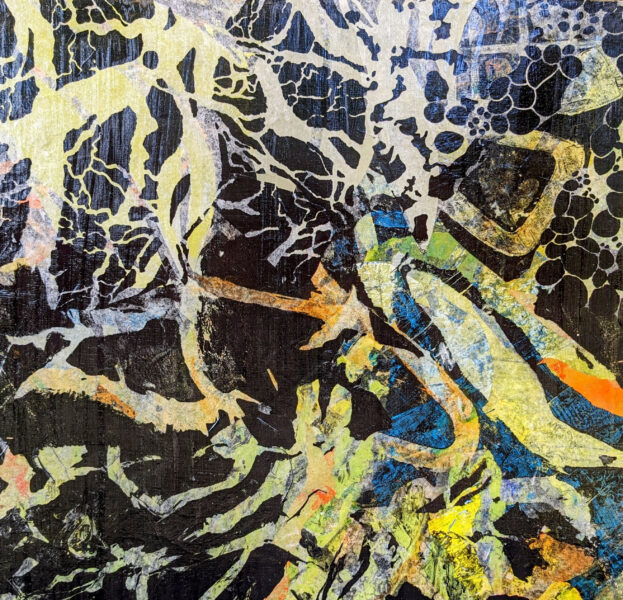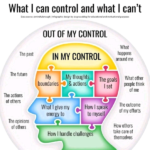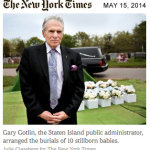
Bless Oliver’s Brain.
Again I come out of the shadow to post a Burkeman column on aliveness.
May’s a beautiful month. Here’s to realizing it!
Love, Vicki
|
|
In literal terms, of course, “aliveness” can’t be the right word here, because technically everyone’s alive all the time, whereas aliveness comes and goes. Still, I know it when I feel it. And I definitely know it when my misguided efforts to exert too much control over reality cause it to drain away. And so an excellent question to ask yourself – when you’re facing a tough decision, say, or wondering if you’re on the right track – is: “Does this feel like it’s taking me in the direction of greater aliveness?”
Crucially, aliveness isn’t the same as happiness. As the Zen teacher Christian Dillo explains in his engrossing book The Path of Aliveness, you can absolutely feel alive in the midst of intense sadness. Aliveness, he writes, “isn’t about feeling better; it’s about feeling better.” When I feel aliveness in my work, it’s not because every task is an unadulterated pleasure; and when I feel it in my close relationships, it’s not because I’ve transcended the capacity to get annoyed by other people – because believe me, I haven’t.
But to whatever extent I do manage what Dillo refers to as fully inhabiting my experience, life is good, in a deep sense, and more vibrant, and I feel more connected to others – and overall, happiness tends to predominate. (I’m always struck by what seems to me the obvious unhappiness of Elon Musk, and wonder if this arises partly from the discovery that the greatest extremes of wealth are no guarantee of feeling alive.)
All of which brings me, in a roundabout but perhaps inevitable way, to artificial intelligence, and my current experience of being driven slightly bonkers by how it gets discussed. (Did I mention I haven’t transcended annoyance?)
One thing that’s missing from those discussions is any consideration of aliveness. Yet I think it might be the key to understanding how to think and feel about AI, how to respond to it, how to integrate it into our lives or not – and how to ensure, as technology marches on, that we don’t lose sight of what really matters for a meaningfully productive life.
Most obviously, aliveness is what generally feels absent from the written and visual outputs of ChatGPT and its ilk, even when they’re otherwise of high quality. I’m not claiming I couldn’t be fooled into thinking AI writing or art was made by a human (I’m sure I already have been); but that when I realise something’s AI, either because it’s blindingly obvious or when I find out, it no longer feels so alive to me. And that this change in my feelings about it isn’t irrelevant: that it means something.
Meanwhile, aliveness is certainly missing from the future envisioned recently by Mark Zuckerberg, in which the loneliness epidemic will be somehow alleviated by artificial friends – a gang of pals who are always there for you, in every respect, except for the fact that they lack the capacity to know that you even exist.
More subtly, it feels like our own aliveness is what’s at stake when we’re urged to get better at prompting LLMs to provide the most useful responses. Maybe that’s a necessary modern skill; but still, the fact is that we’re being asked to think less like ourselves and more like our tools. It makes you wonder if Wendell Berry had it right when he wrote: “It is easy for me to imagine that the next great division of the world will be between people who wish to live as creatures and people who wish to live as machines.”
And aliveness is definitely what I felt drain from my soul when I imagined being on the receiving end of a profoundly obnoxious internal memo from Micha Kaufman, chief executive of the freelance platform Fiverr, warning his staff that AI is coming for their jobs – except maybe if they immediately start working much harder, faster and more efficiently for him. (Kaufman’s memo is so insufferable that it is, in its own twisted way, a testament to human creativity; I found it via Sophie Katsali, who dissects its unspoken messages brilliantly here.)
But a working life spent in the manner that Kaufman implicitly proposes – in a crouch of fear, fixated on losing as little ground as possible, ceaselessly hypervigilant in an effort to stave off catastrophe – seems to me entirely antithetical to the possibility of true aliveness. Why on earth would anyone want to spend their finite days in that way?
The obvious answer, of course, is that you might have no choice: that given what’s coming, anyone who wants to keep food on the table must give up their dreams of aliveness, and buckle down to placating the machines instead. I have two things to say about that, the first of which is that I don’t believe it: that aliveness is so central to meaningful human experience that there’ll always be a market for those who can cultivate it, embed it in what they create, foster it in institutions and organisations, and bring people together to experience it.
But the second is that even if I’m hopelessly wrong about that, and the direst predictions about AI disruption come true, then navigating through life by aliveness is still the right choice, because that’s what makes life worth living.
So you might not get to avoid major upheavals or painful sacrifices thanks to technological and economic shifts. But you’ll endure them, if you must, not out of blind panic, but in the context of navigating toward more aliveness for yourself and those you care about.
And when you proactively choose to integrate AI tools into your work – because despite the tone of this newsletter, there’s plenty going on that’s exciting, that might even enhance aliveness – you won’t be doing so in some default assumption that they’re automatically a good thing. Instead you’ll be doing so in the spirit of the Amish, who ask first whether a specific technology seems likely to serve their highest values, and only embrace it if it does.
And if in a year or two or ten the paragraphs above look hopelessly naïve… well, I think I’ll be glad to have been naïve, in this context. Because I suspect that a certain form of naivete may be a precondition for aliveness. In a world where tech commentators confidently declare that we poor ignoramuses haven’t even begun to get our heads around what’s barreling down the tracks towards us, I think it’s good to stay fully, even slightly foolishly, committed to the idea that humans doing human things, with other humans, is and will remain at the vital heart of human existence. Because otherwise what on earth’s the point?

What else has Vicki been up to? Check out her latest paintings!





























